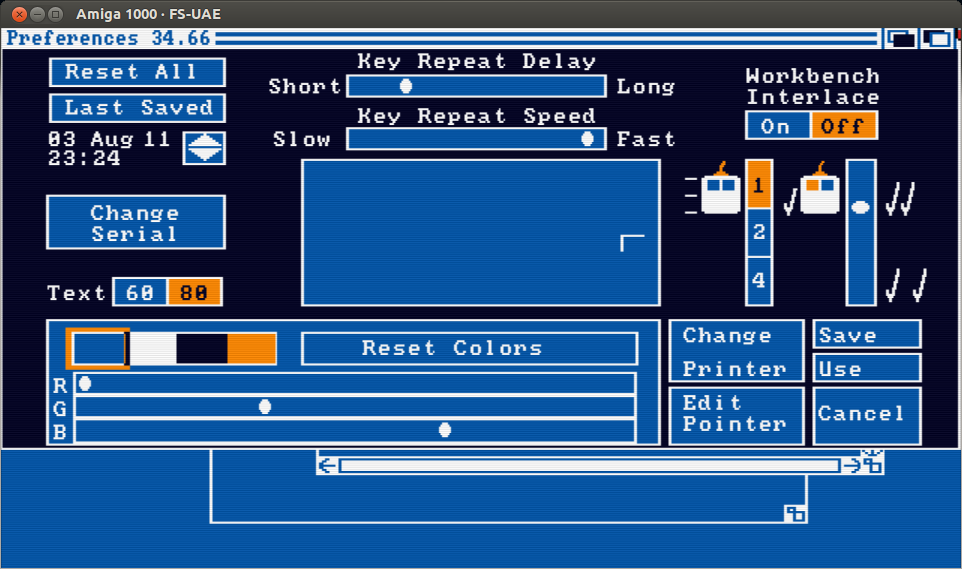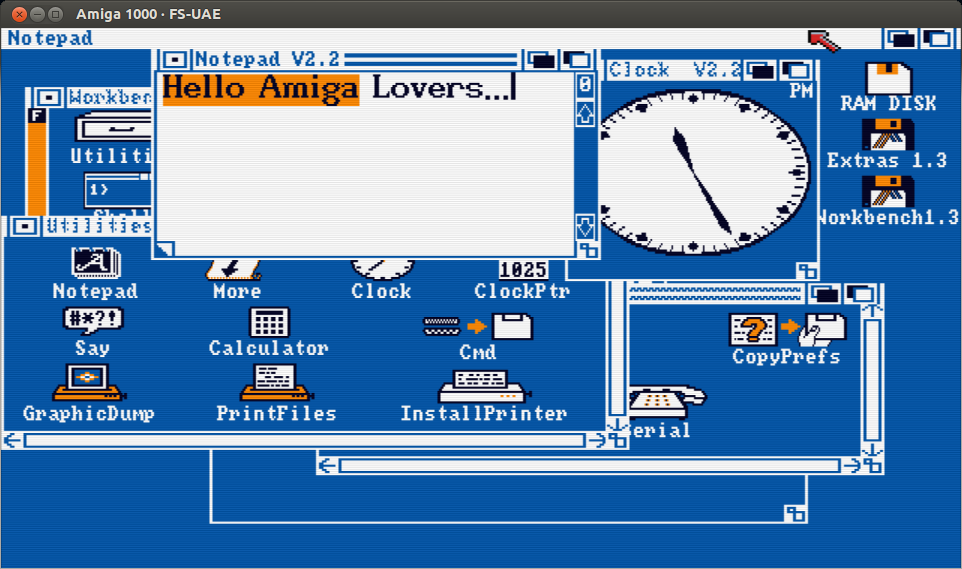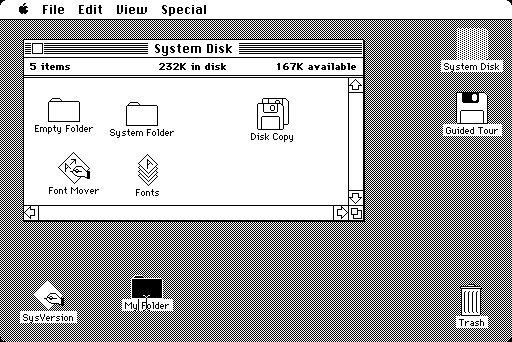I just completed the excellent biography of Steve Jobs by Walter Isaacson. it took me a while to listen to because it's frankly a painful account of a man who was both brilliant in his attention to detail and execution of vision, and a complete jerk when it came to inter-personal matters. As someone who firmly sides on the side of open platforms (hardware, software and content) I find Steve Jobs repugnant with his complete dismissal of opening up the Apple environments. Yet I can completely appreciate why he did it: because people who aren't clued-in on how to behave manage to fuck things up. Instead of developing clean systems that exude functionality and design you get hodge-podge solutions that look and work like crap.
I've recently become enamoured with the Amiga platform. The Amiga hardware was brilliant: designed by Jay Miner who designed the chips for the ubiquitous Atari VCS / 2600 and the amazing Atari 400 and 800. The Amiga should have been a revolution and by rights should have given Apple and IBM a run for their money. But because it didn't have clear vision (it started off as a video game console) it had a rocky start. Commodore wound up purchasing the company after Atari had loaned the fledgling Amiga money - money that it figured would give Atari rights to the chipset it so desperately wanted). Once Commodore released the initial Amiga 1000 machine it never figured out what to do with the machine. The interface, while revolutionary, was extremely clunky when compared with the superior and more intuitive Macintosh interface (and let's face it: the Amiga Interface was pretty ugly)
 The Amiga Preferences Screen. Only Lotus Notes looks worse.
The Amiga Preferences Screen. Only Lotus Notes looks worse.
 Amiga Workbench: Functional desktop but everything lacks polish.
Amiga Workbench: Functional desktop but everything lacks polish.
 Macintosh Finder. Clean lines, nice fonts. No wonder designers flocked to this machine.
Macintosh Finder. Clean lines, nice fonts. No wonder designers flocked to this machine.
Apparently Steve Jobs toured Amiga on several occasions, but nothing came of it. Had Steve Jobs purchased Amiga it could have been an interesting match. But something tells me that while the Macintosh might have benefitted from the injection of talent (and there's no doubt that the Amiga Team was talented) I can't imagine a history where Amiga could thrive at Apple. Nor could I imagine a scenario where Amiga thrived at Atari. Atari spent most of its time trying to destroy Commodore. Jack Tramiel (recently removed from Commodore - a company he founded) was set on nothing less than the destruction of Commodore. Had Atari purchased Amiga it's unclear what would have become of the machine - Atari was hemorrhaging money like crazy after the crash of the video game market. The only place Amiga could have thrived was at Commodore, but sadly even Commodore didn't know what to do with the machine. Worse, tensions in the company were so high that a clever engineer managed to sneak in an easter egg into the firmware of the machine: "We made the Amiga, they fucked it up".
So what does this have to do with Jobs? All throughout this book I was reminded that while I didn't care to be shackled to Apple's products (I prefer open systems and open hardware) I can't help buy be amazed with products that he made. That seemed to be the refrain of the book: like him or not, Apple and Jobs made some amazing products and revolutionized the industry. Without Jobs the personal computer revolution would have taken much longer to come to fruition (the Atari 400 and 800 computers were direct competition to the Apple II. Hell, most personal computers were a direct result of the Apple II). When the Apple Lisa and the Macintosh were released I realized the command-line metaphor for interacting with computers was at an end. WYSIWIG was an amazing feat, and everything seemed to work better on the Macintosh. It would be years before I would ever own a Macintosh (and both machines were second-hand Scully versions) but every time I used one I could see why folks loved them. I'm still a bit of a command-line nerd though so I never ponied up the cash to get a new Macintosh, though I did get to use one for work. By that time I'd become so used to GNU-based UNIX machines that using the command-line on the Macintosh became a series of hacks. Being a GNU UNIX machine wasn't what the Macintosh was designed to be. Similarly Jobs disrupted the phone, tablet, music, book publishing, and movie industries with his radical thinking. Even his supposed failure at NeXT pointed the way to Mac OSX. Apple's designs were often imitated, but rarely were they surpassed (and when they were they felt free to borrow those features).
In many ways Steve Jobs is like the Walt Disney of the computer industry: happy to listen to great ideas, quick to incorporate ideas that aren't "shit", and extremely protective of those ideas in the final released product. Their companies and founders created teams of some of the best in their field. I've always admired Steve Jobs, and this book continued my admiration, both of the successes and inexplicable flaws. But I will admire from afar as I would rather cobble together my own solutions than take what was handed to me, even if that solution is perfect in every way. I'm glad to live in the world that Steve Jobs helped create, and I'm glad that Steve Jobs (in his kinder and gentler phases) imparted his wisdom for those to take to heart and do as they wish.
I'm not sure we'll see someone so revolutionary as Steve Jobs; few folks make a dent in one industry, let alone multiple industries. But I'm glad he did, and I'm glad this biography was written when it was. I'm sure there will be others that will try to paint a more humane side to Steve Jobs, but this is the one I find most authentic. And though we may disagree on whether the gardens should be open to the commons or walled off, I'm glad we had someone so perfectly show how beautiful a walled garden could be.